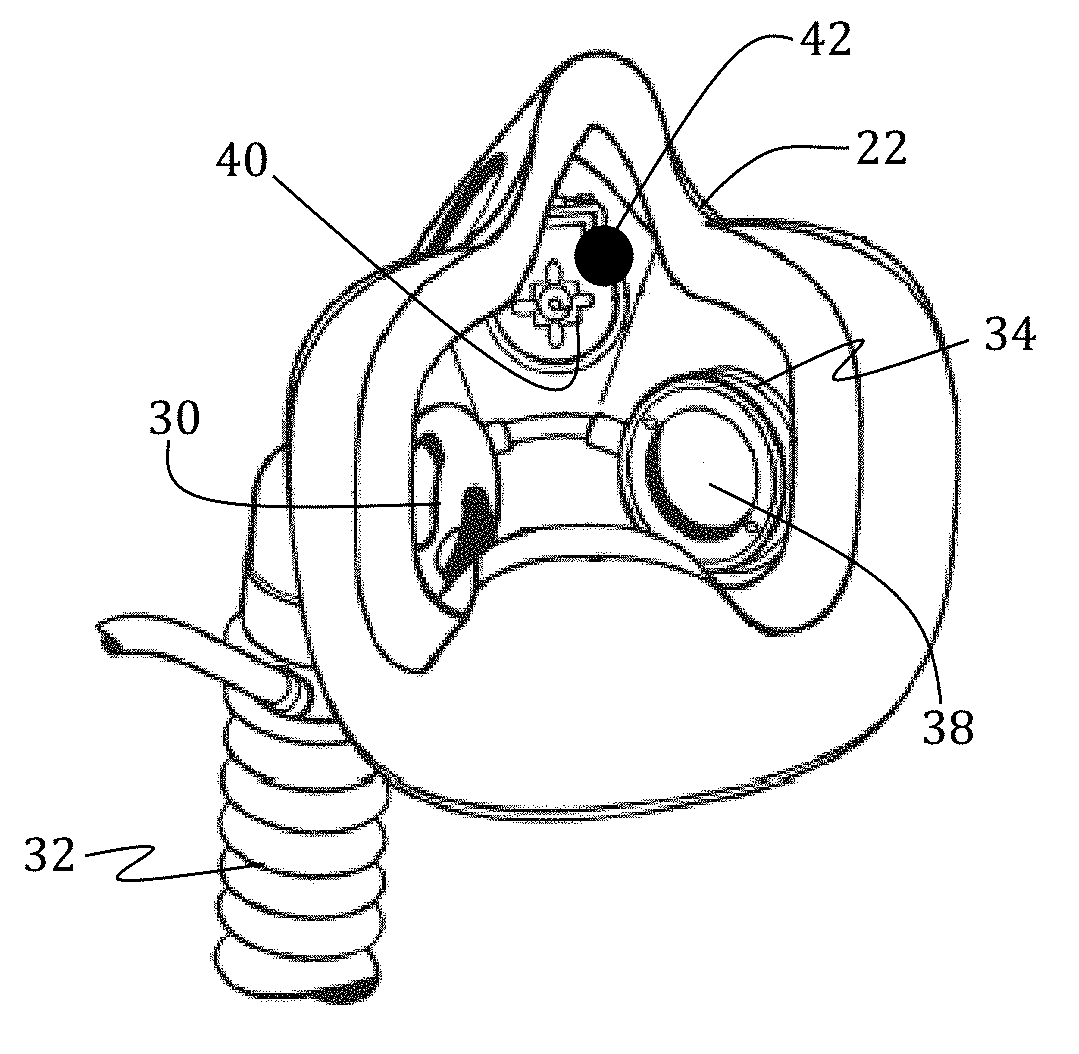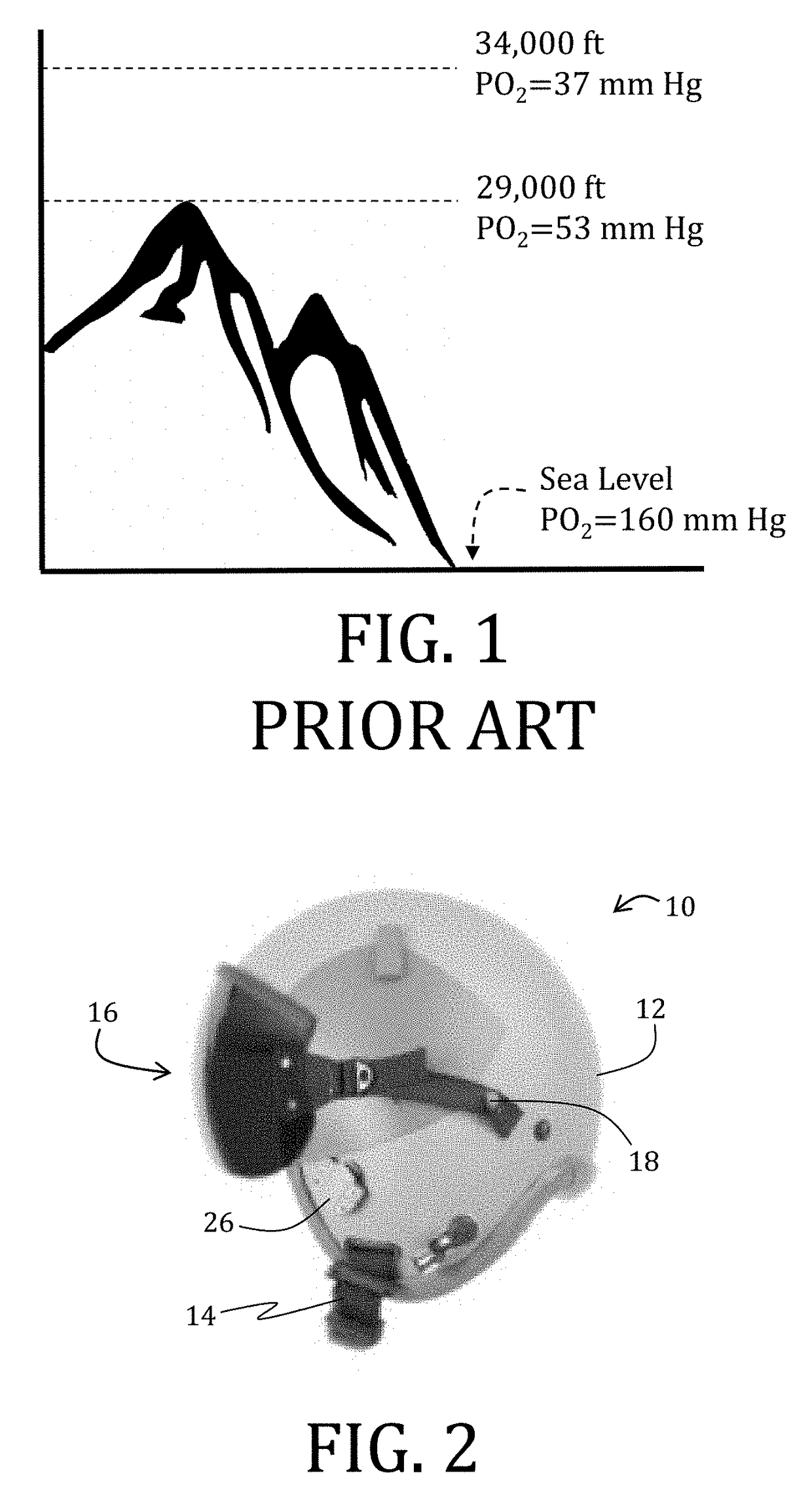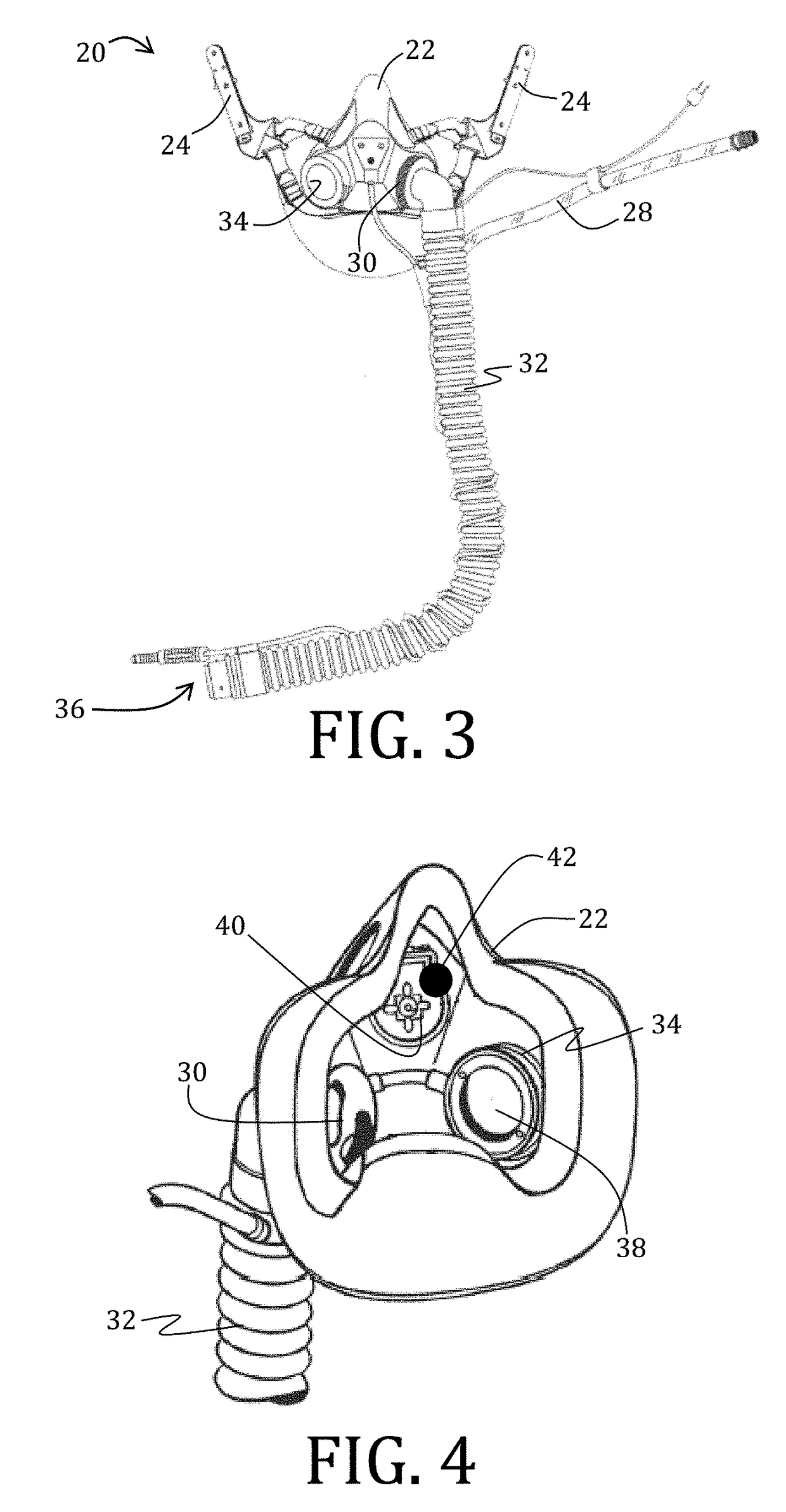Exhaled breath hypoxia biomarkers
a biomarker and oxygen-inhalation technology, applied in the field of biomarkers, can solve the problems of affecting the safety of climbers, and posing an immediate threat to pilots, aircraft, and civilians on the ground
- Summary
- Abstract
- Description
- Claims
- Application Information
AI Technical Summary
Benefits of technology
Problems solved by technology
Method used
Image
Examples
example
[0050]Volunteer subjects were placed in a modified flight mask in line with a Reduced Oxygen Breathing Device to simulate atmospheric oxygen (O2) content for altitudes up to 34,000 feet. The simulated flight profiles included three, five-min stages in sequential order: (1) sea level, (2) altitude up to 25,000 feet or sea level (as placebo), and (3) recovery (100% oxygen). Exhaled breath was collected, serially, using a Logistically-Enabled Sampling System-Portable (“LESS-P”) (Signature Science, LLC, Austin, Tex.). Each sample was acquired on individual Tenax TA TD tubes of LESS-P, every min of an exposure time with a flow rate of 200 mL / min. After acquisition was complete, all samples were capped with brass / PTFE caps and stored at 4° C. until analyzed.
[0051]All sorbent tubes were thermally desorbed onto a TD-100 thermal desorber (Markes International, Ltd., Llantrisant, Wales, UK) and analyzed on a Trace Ultra-ISQ gas chromatograph in line with a single quadruple mass spectrometer (...
PUM
 Login to View More
Login to View More Abstract
Description
Claims
Application Information
 Login to View More
Login to View More - R&D
- Intellectual Property
- Life Sciences
- Materials
- Tech Scout
- Unparalleled Data Quality
- Higher Quality Content
- 60% Fewer Hallucinations
Browse by: Latest US Patents, China's latest patents, Technical Efficacy Thesaurus, Application Domain, Technology Topic, Popular Technical Reports.
© 2025 PatSnap. All rights reserved.Legal|Privacy policy|Modern Slavery Act Transparency Statement|Sitemap|About US| Contact US: help@patsnap.com



